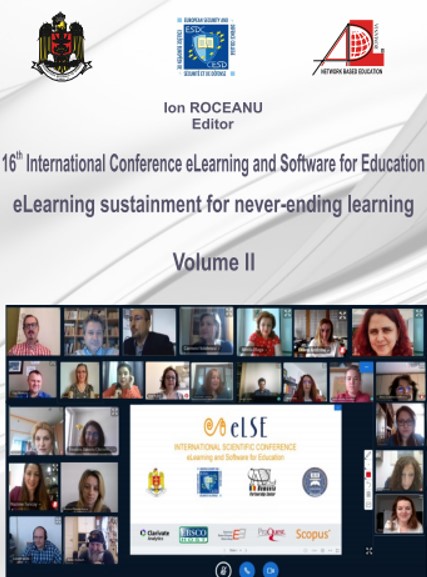E-LEARNING AND IN-CLASS LEARNING SYSTEMS FOR UNDERGRADUATE ENGINEERING STUDENTS: PSYCHOLOGICAL AND PEDAGOGICAL ASPECTS
E-LEARNING AND IN-CLASS LEARNING SYSTEMS FOR UNDERGRADUATE ENGINEERING STUDENTS: PSYCHOLOGICAL AND PEDAGOGICAL ASPECTS
Author(s): Svetlana Pozdnyakova, Natalia R. KIRICHENKO, Yulia SavinovaSubject(s): Foreign languages learning, Higher Education , Educational Psychology, ICT Information and Communications Technologies, Distance learning / e-learning, Pedagogy
Published by: Carol I National Defence University Publishing House
Keywords: e-learning; in-class learning; engineering students; foreign language for occupational purposes;
Summary/Abstract: The aim of this work is to describe the most effective tools of e-learning and in-class learning systems for undergraduate engineering students. Experience shows that today’s students perceive and assimilate educational material in a completely different way than it was 15 or even 10 years ago. In this article the authors would like to touch upon the main features of perception the information by the modern generation, as the old teaching methods, when the material was absorbed in a simple and quick way, are not effective anymore. Besides while teaching a foreign language for occupational purposes (LOP) it must be taken into account that methodology of teaching General Language differs from that of LOP. The purpose of teaching a foreign language in this case is dictated by the professional orientation of students, thus methodologists and teachers of foreign languages are faced with a task to develop special training programs that meet all requirements of a specific working group. These factors should be kept in mind while compiling educational programs. The research shows that in comparison with traditional forms of education, e-learning requires the use of modern gadgets, the usage of which entails changes in the system of forms and methods of teaching. It should be noted that e-learning does not contradict other forms of organization of the educational process and is easily integrated with it. All in all, new methodology must be implemented to meet the educational needs in a new era of technology. In the article the authors show that combination of e-learning with face-to-face classes allows to optimize the process of learning, makes this process more effective and easier.
Journal: Conference proceedings of »eLearning and Software for Education« (eLSE)
- Issue Year: 16/2020
- Issue No: 02
- Page Range: 455-461
- Page Count: 7
- Language: English

